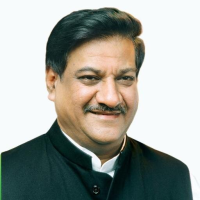Desperate Congress-NCP Resort to Reservation Quotas as Maharashtra Election Nears
 Chief Minister of Maharashtra Prithviraj Chavan
Chief Minister of Maharashtra Prithviraj Chavan
You know an election is near when a government proposes reservation quotas for a sizeable community. Sure enough, with the Maharashtra assembly election scheduled later this year, the Congress-NCP state administration has announced 16% reservation for backward Marathas and 5 per cent for Muslims in education and government jobs.
This is being seen as a cynical attempt at winning votes from these two communities. With the Congress-NCP alliance decimated in the recent parliamentary election – the BJP-Shiv Sena combine won 41 out of the 48 parliamentary seats in Maharashtra – the alliance was under pressure to do something.
Except that this measure may not help the incumbent. In March the then Congress-led UPA administration had hurriedly passed a reservation for Jats ahead of the general election. Yet the BJP and its allies still won most of the seats in the seven states with a sizeable Jat population: Uttar Pradesh, Madhya Pradesh, Gujarat, Rajasthan, Haryana, Himachal Pradesh and Bihar.
Similarly in Uttar Pradesh the state administration had announced reservation quotas for 17 most backward castes (MBCs) in March, barely minutes before the general election was announced and the model code of conduct came into force.
Unfortunately for the ruling Samajwadi Party, it did not win any political benefit from its decision as the party won a mere 5 parliamentary seats out of 80 in the state, down from the 23 seats it won in 2009.
Clearly Indian voters are politically aware and know fully well why an administration suddenly declares a reservation quota prior to an election, despite having done nothing in the previous 5 years.
There is certainly a case for supporting the Muslim community in Maharashtra. The Mahmoodur Rahman committee report found that 49% of Muslims in the state lived in poverty, compared to 33% of people belonging to Scheduled Castes and Tribes.
Yet ramming through a quota on the eve of an election is always going to be seen as controversial, even by supporters of such a quota.
Union Minister for Minority Affairs Najma Heptulla criticised the state government: “The decision to give reservation to Muslims makes a fool of the community because the country runs on a Constitution and that Constitution does not allow religion-based reservation. It is a tried and tested gimmick of the Congress. They tried to do it once before in Andhra Pradesh and the matter got stuck in courts.”
Eyebrows are also being raised over the reservation for Marathas who happen to be a dominant community in the state. The administration has created a new category for them, labelling the Marathas an ‘Economically and Educationally Backward Community’.
Yet 10 out of Maharashtra’s 17 chief ministers since it became a state in 1960 have been Marathas, including the current CM, Prithviraj Chavan. According to The Indian Express, more than half of all elected members of the legislative assembly (MLAs) in the past 54 years have been Marathas.
A former chairman of the Maharashtra Planning Board told the newspaper, “Almost 50 to 55 per cent of educational institutions — undergraduate and postgraduate, medical and engineering — across the state are controlled by leaders who represent the Maratha community. Of 200-odd sugar factories, the base of the state economy, 168 are controlled by Marathas. Of district cooperative banks, 70 per cent are controlled by Marathas as directors, chairman or panel members.”
Is this a community that requires a reservation quota in government jobs and educational institutions?
It is likely that the latest reservation decision may be challenged in court as the Supreme Court has mandated that the total reservation in any state should not exceed 50 per cent. In Maharashtra this figure now stands at 73 per cent.
Yet with Marathas making up a third of the state’s population, the community is potentially able to swing the result in nearly 200 assembly seats out of 288 in the coming election. As a result, even the opposition parties in Maharashtra cannot be seen to criticise the administration’s decision too much.
It will once again be left to voters to speak their mind later this year.
- Karan Singh
- Top Stories
- Controversies
- Where is the Money Going?
- India and the World
- Appointments and Resignations
- Unusual News
- Latest News
- India College Chain’s Expansion into U.S. Draws Opposition from Massachusetts Officials over Quality of Education
- Milk Shortages in India Tied to Release of New Movies Featuring Nation’s Favorite Stars
- Confusion Swirls around Kashmir Newspaper Ban in Wake of Violent Street Protests
- Polio-Free for 5 Years, India Launches Vaccine Drive after Polio Strain Discovery
- New Aviation Policy Could Increase Service, Lower Ticket Prices






Comments